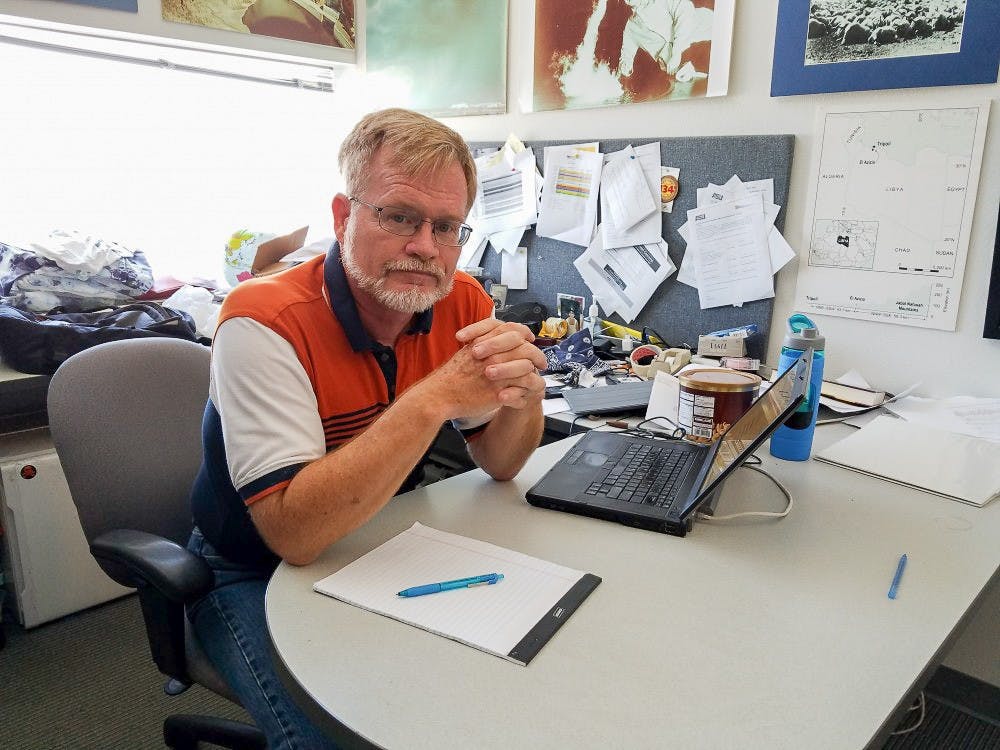Two geographical science professors at ASU are challenging the narrative that the devastating hurricane season this year is due to climate change.
The intense hurricane season this year has whipped up a public debate about the effects of climate change on hurricanes, and a poll issued by ABC News and the Washington Post states that "more than half of Americans now see climate change as responsible for the severity of recent hurricanes."
But the notion that climate change has caused the succession of hurricanes is not settled among climate scientists.
The Geophysical Fluid Dynamics Laboratory at the National Oceanic and Atmospheric Administration concluded in a report this August that it is too early to tell whether human emitted greenhouse gasses currently affect Atlantic hurricanes.
However, the report also suggested that hurricanes could be more intense by the end of the century because of human activity.
Nancy Selover, Arizona State climatologist and research professor at the School of Geographical Sciences and Urban Planning, acknowledges a warming climate but takes issue with the claim that extreme hurricanes will continue due to climate change.
"It's an implication that we're going to have two or three more of these next year," Selover said. "That's not the case – that's not how it works. We may go another two years without another major one in the U.S."
Selover said intense hurricane seasons are not becoming more frequent, and that it is inaccurate to attribute current storms to climate change.
"You can say 'we think that climate change, because it's warming the oceans, is contributing to having these storms be strengthened.' That's an OK message," Selover said. "But to just say these storms are climate change is an oversimplification and an overstatement."
One of the main reasons that lines are being drawn between climate change and hurricanes is that a warmer climate puts additional heat into the oceans. Warmer sea surface temperatures are thought to give hurricanes more fuel to intensify.
James Elsner, a climatology professor at Florida State University, said climate change has impacted the intensity of storms this year due to warmer ocean water.
"Warmer sea surface temperatures are due to climate change," Elsner said. "When you have a hurricane that’s formed and getting strong, it’s going to get even stronger with warmer oceans – that’s not debatable."
Randall Cerveny, an ASU geographical sciences professor, agreed that hurricanes become stronger with warmer ocean water, but said they are also impacted by a wide range of other interconnected factors that are harder to pin on climate change.
"The one thing you have to realize about hurricanes is that sea surface temperatures play a role, but there are other factors as well," Cerveny said.
Cerveny said the warmer sea surface temperatures coupled with calmer upper-level winds this year were perfect for hurricanes to intensify and remain intact until landfall.
"Right now in the Atlantic for example, we’ve got really hot Atlantic sea surface temperatures, but we also have very limited wind shear, so these systems are able to intensify and stay connected and together for longer periods of time," Cerveny said.
Cerveny said that extreme weather events like hurricanes are too complex to reliably understand and predict. He added, however, that other weather conditions like heavy rain and flooding may become more common as climate change continues.
"We don’t yet fully understand all aspects of our climate system, particularly meteorological phenomena like hurricanes," Cerveny said. "One of the things that I think has to be stressed is that places are going to get wetter, and that you need to handle things like Houston in the future."
Reach the reporter at cscragg@asu.edu or follow @monsoonchaser on Twitter.
Like State Press on Facebook and follow @statepress on Twitter.




